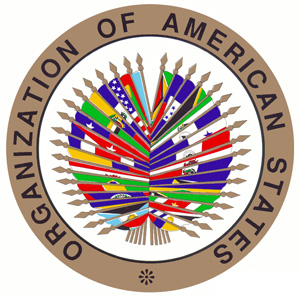International Court to Hear Argument on U.S. Workers’ Rights Violation

National Employment Law Project Testifies at Inter-American Court in Chile
On June 4, 2003, in Santiago, Chile, the Inter-American Court of Human Rights will hear arguments on a country’s responsibility under international law to protect all workers, regardless of their immigration status. The Inter-American Court’s decision could affect labor law protections throughout North and South America. The case was prompted by a March 2002 U.S. Supreme Court decision in Hoffman Plastic Compound v. the National Relations Labor Board — that undocumented immigrants, fired because they participated in union activities, are not entitled to back pay under the National Labor Relations Act.
In response to the Hoffman Plastic Compound decision, the government of Mexico, concerned that Mexican workers’ rights in the United States were eroded, asked the Inter-American Court for an advisory opinion whether international labor law is broken by a country’s decision to limit workers’ legal remedies based on their documentation and status as an immigrant. Five American states, joined by the Inter-American Commission on Human Rights, presented arguments to the court. In addition, American law professors Beth Lyon, Villanova University, and Sarah Cleveland, University of Texas, and the National Employment Law Project presented written arguments on behalf of 50 other organizations in the United States.
“It is our hope that bringing international attention to this case will pressure the U.S. government to overturn the Hoffman ruling. No nation that prides itself on the principles of equality and justice can tolerate a system of two-tiered labor protections.” said National Employment Law Project Attorney Rebecca Smith, who was invited by the court to present oral argument. Ms. Smith and Professor Beth Lyon, Villanova University, will present argument on behalf of labor, civil rights, immigrants’ rights, and religious organizations in the U.S.
The Inter-American Court of Human Rights is the principal international court for North and South America. Its primary mission is to interpret and apply a 1969 international agreement called the American Convention on Human Rights. Most of the countries in the Americas, including the U.S., have either signed or ratified the American Convention or are bound by it because of their membership in the Organization of American States. The Court has advisory jurisdiction, which allows it to rule on the compatibility of domestic laws of member states with international human rights treaties. A ruling by the Court, while not strictly binding on the U.S., could induce changes in U.S. law and in the law of other North and South American countries. “Denying back pay remedies to unauthorized workers is bad policy because it encourages unscrupulous employers to lower costs by hiring even more people without papers. Moreover, international law is clear that a country’s immigration control measures may not violate fundamental workplace rights,” said Professor Beth Lyon.

